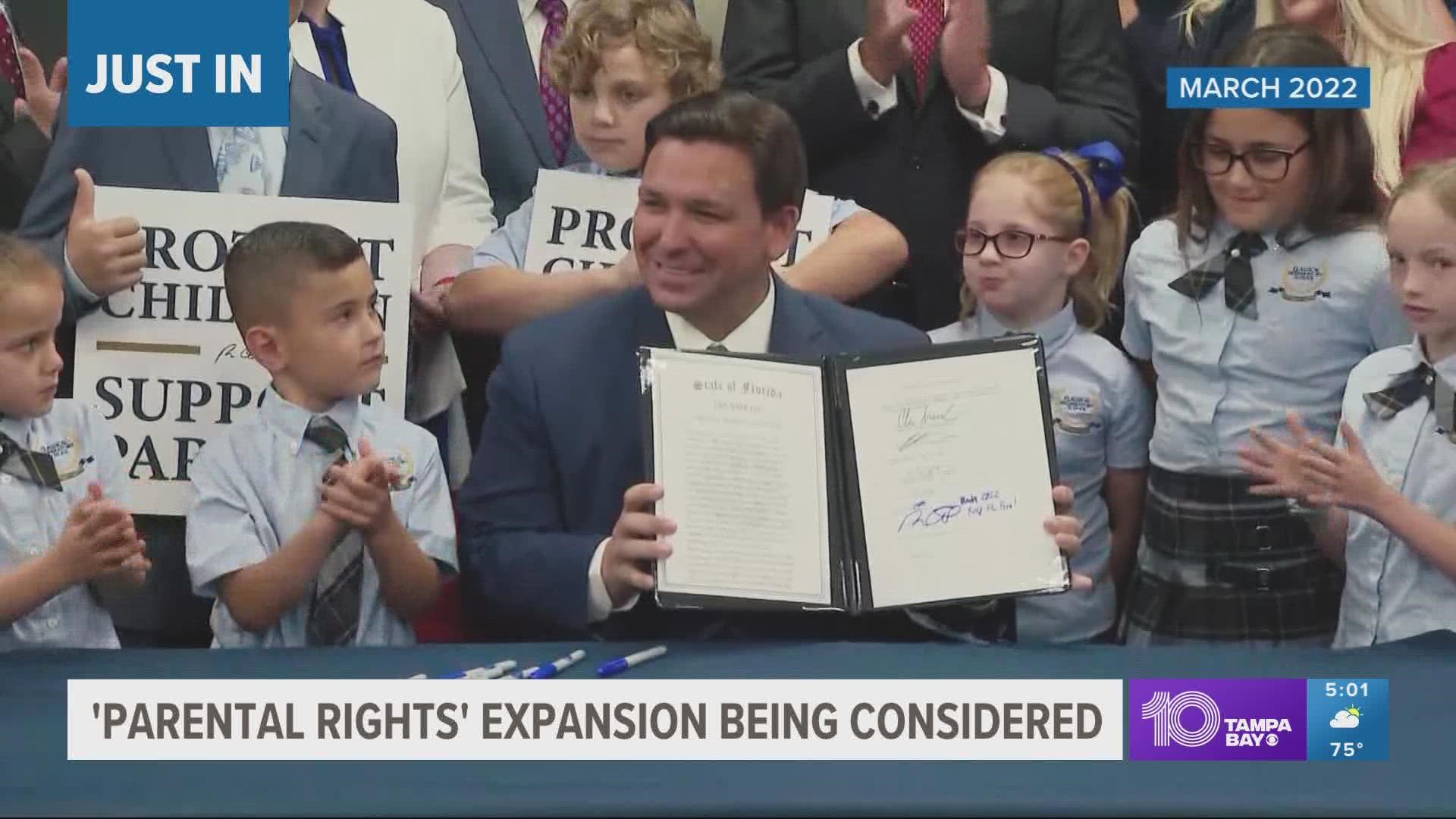TALLAHASSEE, Fla. — Gov. Ron DeSantis’ office confirms he would be supportive of expanding the state’s ban on the instruction of sexual orientation and gender identity to middle school students.
That’s in response to comments recently made by Florida’s new Senate President Kathleen Passidomo, R-Naples. Passidomo said she’s open to expanding the "Parental Rights in Education" law — called "Don't Say Gay" by critics — that restricts what can be taught in classrooms about LGBTQ issues to include fourth, fifth and sixth graders.
“The schools are not supposed to be raising our kids,” she told a handful of reporters during a press conference in December. “It should be the parents, and that’s really what the intent of the bill was.”
As of this writing, no bill expanding the state's ban has been filed.
Currently, the law signed by DeSantis last March bars classroom instruction about sexual orientation and gender identity in kindergarten through third grade. Beyond third grade, it requires such instruction to be “age or developmentally appropriate” for students.
Passidomo said she wouldn’t be supportive of expanding the prohibitions to high school.
“Because kids in high school are hopefully a little more mature, or at least they should be,” she said. “But the middle school, maybe go up to sixth grade."
DeSantis’ press secretary Bryan Griffin told 10 Tampa Bay in a statement, “The governor would consider the merits of such a bill in final form if it comes to his desk as a product of the forthcoming legislation [sic] session."
Griffin also repeated what the governor and supporters of the law have often said, that “the purpose of our education system is to educate kids, not indoctrinate kids.”
Critics who dubbed the legislation "Don’t Say Gay" prior to its passage expressed concerns it could lead to discrimination against the LGBTQ+ community.
While the word "gay" does not appear in the law, opponents fear it’s having a chilling effect in Florida's schools.
"They insisted that the Don't Say LGBTQ law would be narrow in scope and limited to K-3, despite knowing that the law's impacts would be far broader and more sweeping," Equality Florida Brandon Wolf told 10 Tampa Bay in a statement.
"Our state should be a place committed to protecting all students and respecting all families, not treating us as something to be ashamed of or censoring our very existence."
In Hillsborough County, the Bay area’s largest school district was notified by the state that its LGBTQ+ critical resource and support guide for staff outlining restrooms, gender pronouns and coming out was not in compliance with the law. The policy is currently under review as the school board determines how to proceed.
In Pasco County, the district announced it will no longer utilize “safe spaces” and will no longer display “safe space” stickers in response to the law, which also requires school officials to notify parents of changes in their child's behavior. The superintendent argued the safe spaces make it unclear to staff when a student's behavior warrants reporting.
In Central Florida, yearbooks were initially held from being distributed because of images of students holding rainbow flags and a “love is love” sign while protesting the law. But after an outcry from students and parents over censorship, the school board overruled the superintendent's plan to cover up the photos.

